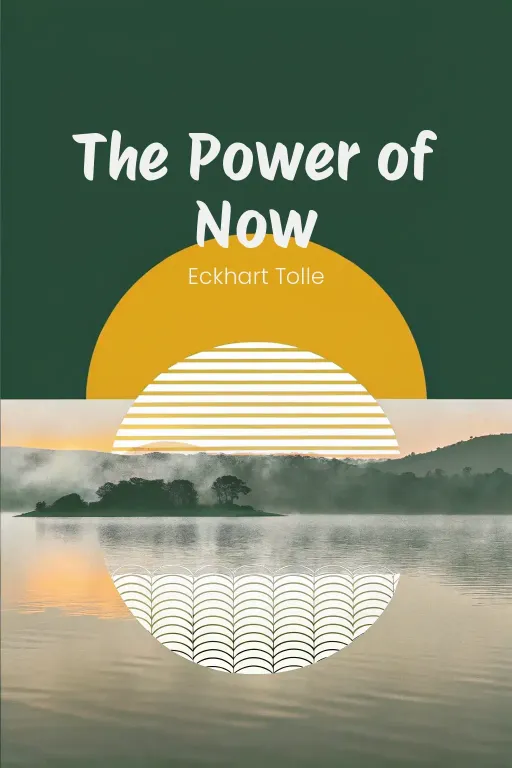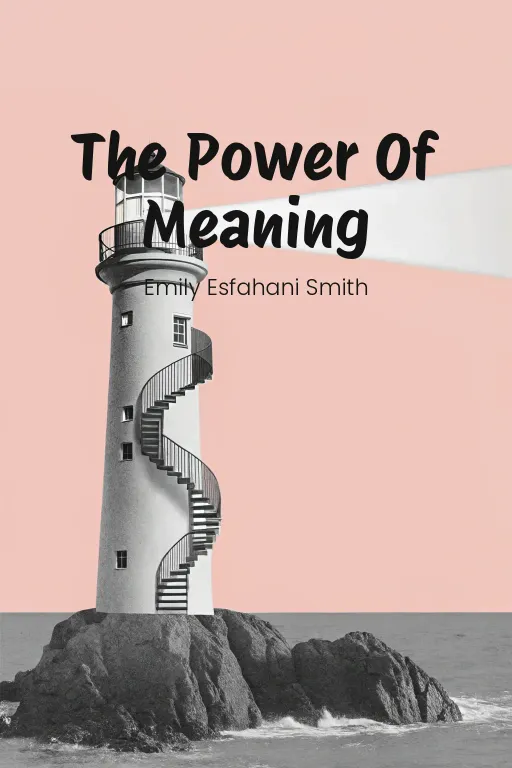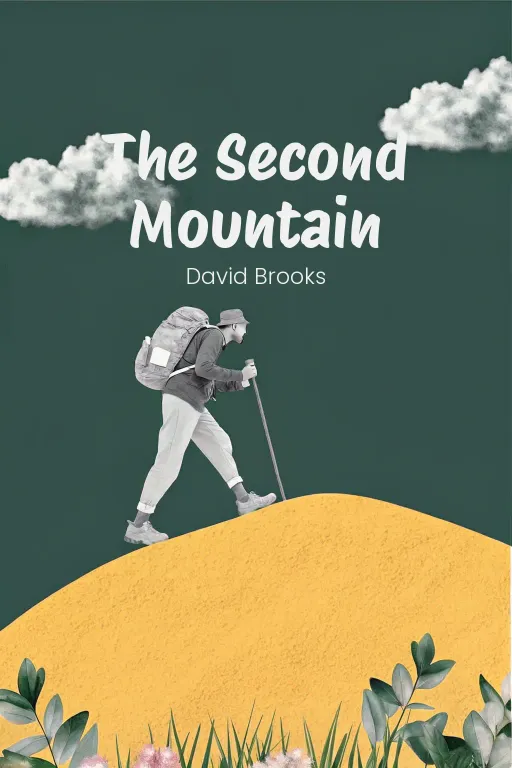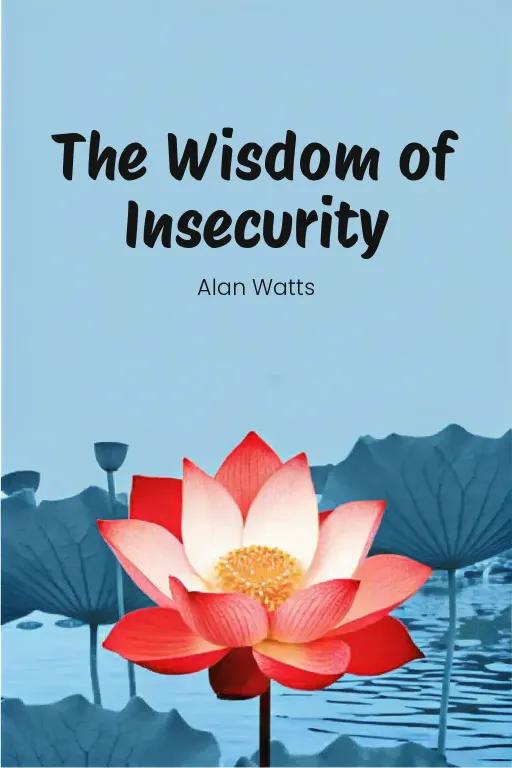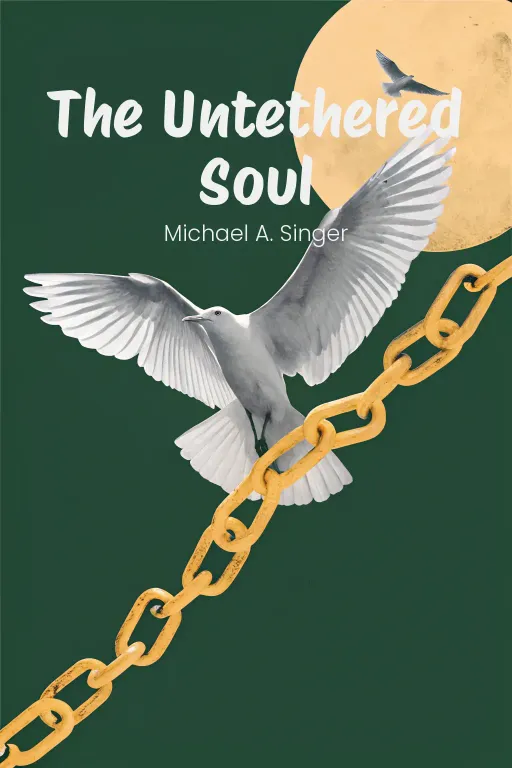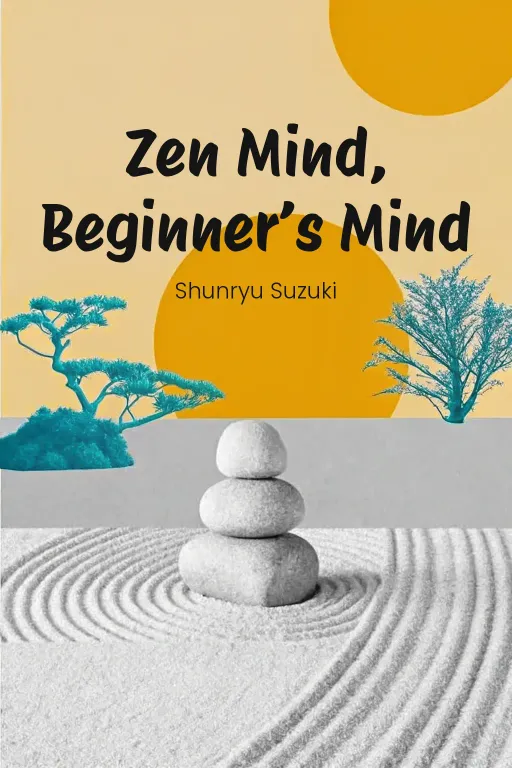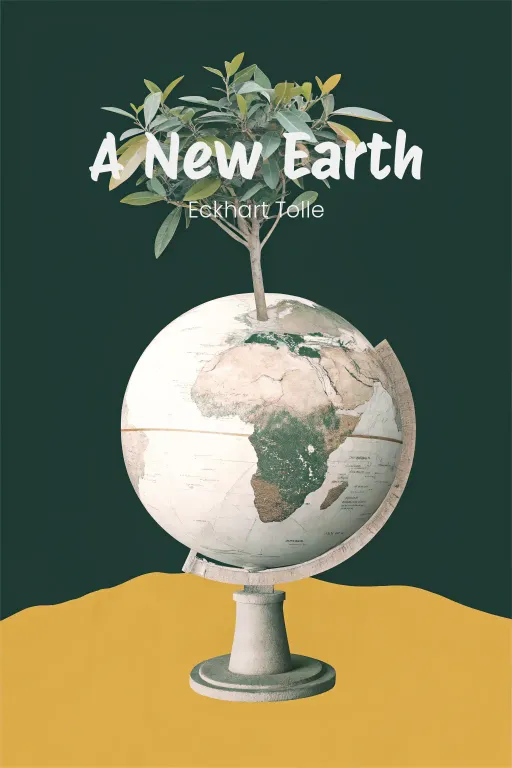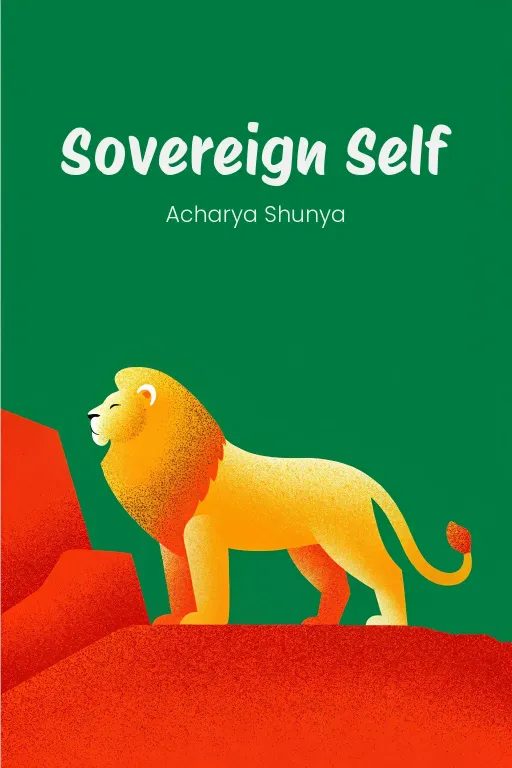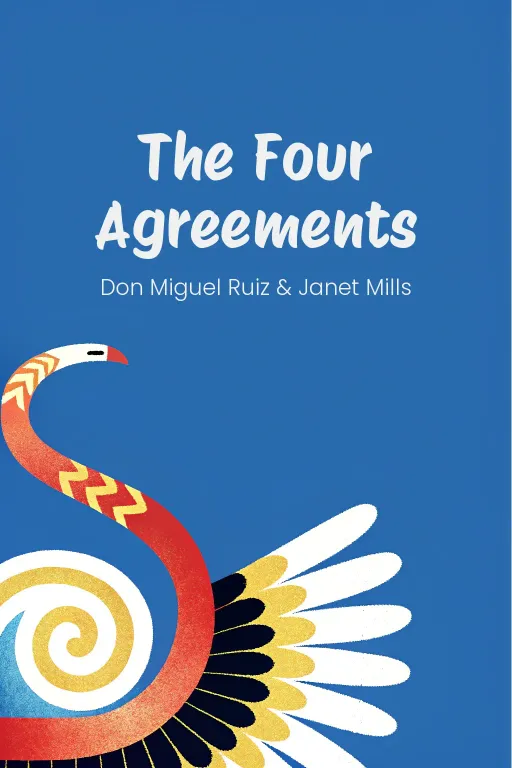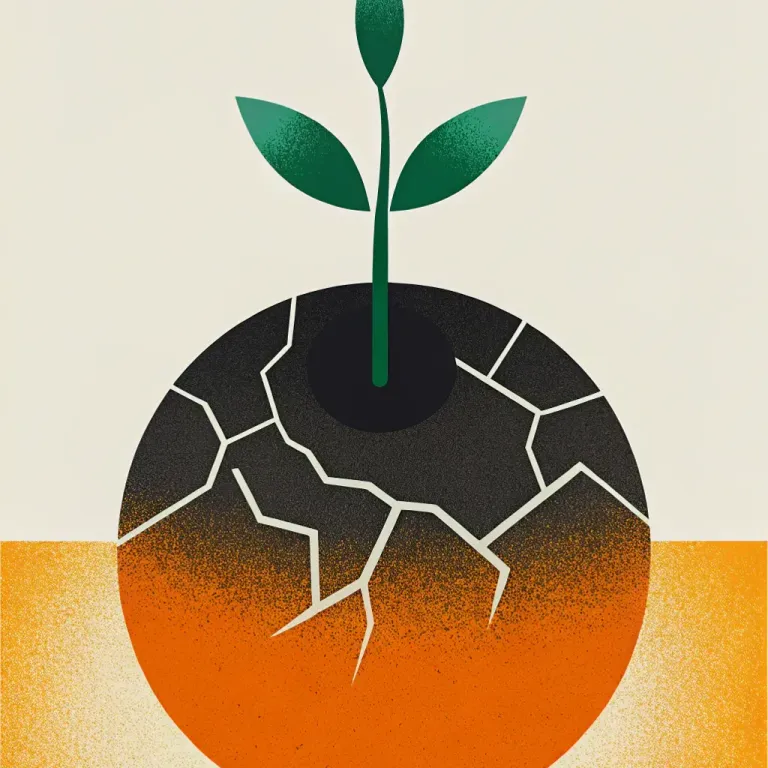
Ego Detox: Find Your Calm, Change the World
Podcast by The Mindful Minute with Autumn and Rachel
Awakening to Your Life’s Purpose
Ego Detox: Find Your Calm, Change the World
Part 1
Autumn: Hey everyone, welcome back! Today we're tackling a book making some pretty big promises—like, transforming “the whole planet” big. Rachel, prepare to have your fundamental understanding of self completely shaken! Rachel: Transform the “entire planet”? Okay, that's a bold claim! A little skeptical, sure, but definitely intrigued. So, what's the core message here? Autumn: The core message is all about “awakening”. Eckhart Tolle's A New Earth is essentially a guide for understanding the ego—you know, that part of us that loves holding onto pain, creating drama, and defining ourselves through… well, everything. And the book’s about how we can actually break free from its hold. Tolle believes that this internal shift can bring peace, not just to our own lives, but also trigger a collective transformation for all of humanity. Rachel: So, if enough of us manage to quiet our inner control freaks, suddenly world peace breaks out? That's… quite the leap, isn’t it? Autumn: That's what we're here to explore! And we’re going to do it by looking at five key aspects of Tolle’s teachings. Think of it like peeling an onion. We’ll begin with the illusions the ego creates—what it is, why we buy into it—before moving on to the chaos it can cause in our relationships. Rachel: Sounds like it's about to get real personal. And after the ego messes up our relationships, what’s next, total global meltdown? Autumn: Well, in a way. We're going to dive into how the ego actually feeds on emotional pain, which creates what Tolle calls the "pain-body." Then we’ll transition to discovering our inner purpose, and how that links up to transforming the world, or, as he puts it, creating a “New Earth.” Rachel: Okay, got it. So, ego breakdowns, emotional baggage, discovering purpose, and then, boom, world peace. I guess I should buckle up. Autumn: Exactly! Each layer builds upon the previous one, eventually leading us to what Tolle considers true freedom. So, let's really dig in and see what that might mean for all of us.
The Nature of Ego
Part 2
Autumn: Let’s dive right in, starting with the ego. Eckhart Tolle describes it as a constructed sense of self, a false identity built on things like social roles, possessions, our personal history. It's not the real you, but it sure tries to convince you it is. Rachel: Okay, so the ego is like a highlight reel on social media – carefully curated and, let's be honest, not always the full story. What's the actual danger, though? Is it really more than just a harmless little fib? Autumn: It's more than just that. The ego needs attachments and validation, constantly whispering, "You are what you have, what you do, what others think of you." This leads to a fragile sense of self because the ego is dependent on external factors. The real danger is how deeply it connects us to suffering. If those attachments, or even the illusion of them, are threatened, boom—anxiety, insecurity, even despair. Rachel: So, if my ego tells me I'm “the funny guy at work,” and then I totally bomb at a meeting, my whole identity tanks. Right? Autumn: Exactly! And the ego clings to these roles so tightly that we often mistake them for who we really are. Tolle uses examples like identifying with your job title or your stuff. Picture someone defined as a high-powered executive. If they lose that job, the ego sees it as a personal catastrophe because it's got nothing solid underneath it. It's like building a house on sand. Rachel: And then throwing that house a pity party when the tide comes in. What about this “incessant voice in the head”? Is that just the inner critic or something bigger? Autumn: Good question. It’s not just the critic; it’s that constant mental chatter we all have: comparisons, judgments, overthinking. Tolle calls it “the voice in the head,” and it reinforces the ego. Say someone's failed at something. That voice might harp on their incompetence, replay their mistakes on repeat, compare them to others... Rachel: Oh, the “you're not good enough” playlist? I know it well. Autumn: Unfortunately, we all do. Tolle shows how this voice traps us in endless dissatisfaction. We're either regretting the past—“Why did I say that stupid thing in the meeting?”—or projecting fear onto the future—“What if I mess up the next one?” The ego loves it because it keeps us believing we're never enough. Rachel: So, the ego's like a toddler who constantly needs attention and validation but is never satisfied, huh? What's its deal? Can't it just...chill? Autumn: Perfect analogy. The ego's hunger is never-ending because it's inherently empty. It chases fulfillment in achievements, possessions, external validation, but it never really satisfies. The second we reach one goal, the ego's like, "Great, what's next?" And the cycle continues. Rachel: So, no matter how many shiny toys we buy or promotions we get, the ego's just like, “Cool story, now what?” Autumn: Exactly! Liberation comes when we recognize the ego's game for what it is – a distortion of who we really are. And Tolle gives us tools to start that process, the first being cultivating awareness. By stepping back and observing our thoughts rather than identifying with them, we weaken the ego's grip. Rachel: Okay, but how does that work in real life? Let's say I'm in full-on meltdown mode after getting passed over for a promotion. How am I supposed to “step back” from all those feelings? Autumn: Tolle suggests practicing disidentification. Instead of reacting to thoughts like "I'm not good enough" or "This always happens to me," recognize them as just thoughts. You don't have to believe them or act on them. It's like watching clouds pass in the sky. They're there, but they're not “you.” Rachel: So, you want me to channel my inner weather reporter? "And now, a forecast of insecurity with a chance of jealousy." Sounds simple, but I bet it takes practice. Autumn: It does, but the results can be transformative. Tolle recommends anchoring yourself in the present moment by focusing on your breath. When your mind pulls you into those thought loops, redirect your attention to your breathing: the rise and fall of your chest, the sensation of air moving in and out. It grounds you in the “now” instead of letting the ego drag you into past and future narratives. Rachel: So, every time my mind starts replaying that mortifying thing I said at a party three years ago, I just breathe and let it go. Got it. But what about attachments beyond thoughts? Like losing something tangible, a family heirloom, for example? Autumn: Tolle has a great illustration about that. He talks about a woman who lost a diamond ring—a family heirloom symbolizing generations of legacy and memories. She was devastated at first, but as she explored her attachment, she realized she wasn't clinging to the ring itself, but what it represented: her grandmother, her family history, her sense of identity. Rachel: Ah, so it wasn't just a pricey piece of jewelry—it was her identity wrapped up in a story. Autumn: Exactly. Through awareness, she realized that losing the ring hadn't diminished her essence. She let go of the attachment and found a deeper sense of freedom, which Tolle emphasizes—our true self isn't tied to external symbols. Rachel: Okay, curveball time. If the ego loves validation, why cling to negativity? Who wants to hold onto failure or feeling wronged? Autumn: It seems strange, right? But the ego thrives on grievance too, because it reinforces its sense of self. Tolle explains that someone might identify as “the victim” of injustice or failure, which gives the ego something to hold onto—a story that says, "This is who I am." For example, someone feeling overlooked at work might replay that injustice to validate their identity as “the underappreciated one.” Rachel: So even misery makes the ego feel…important? Wow. It just wants to be the star of the show, whether it’s a drama or a tragedy. Autumn: Precisely. The key is cultivating awareness without judgment. When we start seeing how the ego perpetuates these narratives, we gain power to break free. Instead of reacting defensively or clinging to a grudge, we can respond with empathy and understanding, seeing the situation clearly instead of through the ego’s distorted lens. Rachel: Alright, awareness, breathwork, kicking the ego out of the driver's seat...this sounds doable. What's the bigger picture? How does ditching our baggage help the world? Autumn: Tolle argues that once we stop seeing life through the ego’s lens of separation—“me versus you,” “mine versus yours”—we can foster deeper connection and harmony. It shifts our interactions from competition to collaboration, hostility to empathy. On a broader scale, this collective awakening could address the divisiveness and conflict we see around the world. Rachel: So, ditch the ego, save the world. No pressure! I can see how untangling from false identities could open the door to something bigger, though.
Ego in Relationships
Part 3
Autumn: Okay, now that we've covered the basics of the ego and how it works, let’s move on to the next step: how the ego interferes in our relationships. Really understanding the ego is the key to overcoming it, so how exactly does it shape, distort, and ultimately ruin our connections with others? Rachel: Ah, relationships. The perfect playground for ego-driven drama! I feel like this is where things “really” fall apart. What exactly is Tolle saying about this? Autumn: Well, he’s basically saying that the same ego that latches onto our thoughts and identities also extends its reach into how we connect—or fail to connect—with other people. The ego likes to assign roles in relationships—victim, villain, lover— and these rigid roles “really” prevent genuine connection. Instead of seeing the other person as they are, we see them through the twisted lens of our own ego. Rachel: Right. So relationships are like ego improv—everyone’s playing these pre-set characters. And I’m guessing these roles don’t exactly encourage healthy communication, do they? Autumn: Not at all. Tolle says they actually create repeating cycles of conflict. Take the victim role, for instance. When someone identifies as the victim, they avoid taking responsibility by blaming others for their unhappiness. It's a way of reinforcing their sense of being powerless—while, at the same time, trying to get sympathy or attention. Rachel: So the victim gets to say, “Look what’s happening to me,” without actually looking at themselves or their part in anything. Convenient, right? Autumn: Exactly. And then, on the other end, you have the villain—the person who, willingly or unwillingly, becomes the scapegoat. This dynamic can keep flipping back and forth, creating constant tension. For example, in a relationship, one partner might play the victim by saying, “You never listen to me,” and the other defensively replies, “Well, you’re always so negative.” Suddenly, they’re not partners anymore—they’re enemies trapped in these roles. Rachel: Got it—and then you get the same arguments about who didn't do the dishes. But Tolle doesn’t just talk about villains and victims, right? He mentions other roles, like… the lover? Autumn: Yes, and at first, the lover seems pretty harmless—I mean, who doesn’t want love? But when you look at it through the ego, even love can become possessive or controlling. The ego sees love as ownership, turning “I love you” into “I want to keep you because you fulfill my needs.” So, instead of respect and freedom, it becomes about attachment and fear of losing control. Rachel: So, love goes from being about connection to being like an episode of Hoarders. “This relationship is mine; don’t touch it.” So what happens when these roles clash? Are we just stuck on this dysfunctional loop forever? Autumn: Not at all. Tolle says the answer is conscious relationships. These are partnerships built on presence, authenticity, and awareness, not just ego-driven needs. Instead of playing roles, both partners learn to recognize their own ego patterns and approach each other with openness and clarity. Rachel: Okay, so instead of me saying “well, you’re always late,” I take a breath and ask myself why it bothers me so much—maybe it's because my ego wants to be seen as the responsible one in the relationship? Autumn: Exactly! Conscious presence means stepping back from the urge to react automatically. Instead of feeding the same old patterns, you respond with curiosity and awareness. And Tolle suggests practices to help with this—like focusing on your breath. For example, when things get tense during an argument, pausing to breathe consciously can immediately diffuse ego-driven reactions. Rachel: I like how practical that is. Arguments usually take off like crazy, but this "pause and breathe" thing sounds like the emergency brake. Autumn: That’s a great way to think about it. And Tolle reminds us that simply observing the ego’s behavior without judging it is also transformative. If couples start to recognize their roles—say, realizing when one is slipping into victim mode while the other reacts as the villain—they can stop the cycle and interact from a place of awareness. Rachel: But let’s be real. A couple in the middle of a fight doesn’t always have the clarity to suddenly become Zen. Are there any examples of this concept in action? Autumn: Absolutely. One area where these ideas “really” shine is parenting. Tolle talks about conscious parenting as a way to get rid of ego-driven roles in relationships. Traditional parenting often involves parents pushing their own fears, desires, or societal expectations onto their children. This turns the parent into a role—the martyr who sacrifices everything or the enforcer who demands obedience—and often puts the child into roles like “the troublemaker” or “the golden child.” Rachel: Ouch. So, instead of seeing their kid as a real person, they’re seeing a version of their own ego. What’s the solution here? Autumn: Conscious parenting is all about recognizing and setting aside these roles. For example, instead of overreacting to a child’s tantrum, seeing it as defiance that challenges their authority, a conscious parent might respond with empathy and presence: “What are you feeling? How can I help?” This small change replaces control with collaboration—and builds a stronger, more honest connection. Rachel: There’s a success story about this, right? Autumn: There is! Tolle talks about a mother who was constantly fighting with her rebellious teenage son. At first, she tried to control him with strict rules and punishments, but it just made things worse. Inspired by conscious parenting, she started observing her own reactions without judgment and approached her son with curiosity instead of trying to control him. Simple changes, like “really” listening and asking thoughtful questions, changed their relationship over time. They went from power struggles to mutual understanding. Rachel: So the son wasn’t “the enemy” anymore—he was just a person with feelings, and she started seeing him that way. Seems doable, but… challenging. What about outside the family? Does this conscious approach work on a larger scale? Autumn: Absolutely, and that’s what makes this so impactful. Tolle argues that these same ego-driven roles play out in families, couples, and even societies. Think about it—groups or nations often see themselves as the victim, the hero, or the aggressor. But when people start breaking down these roles in their personal lives, it contributes to a larger shift. Empathy and connection spread outward, breaking down divisions and creating unity. Rachel: Alright, so healing relationships can heal the world. As idealistic as it sounds, it’s actually pretty practical when you break it down. Breathing, pausing, ditching the labels—and, who knows? Maybe our next argument about the thermostat will become a moment of presence.
The Pain-Body
Part 4
Autumn: You know, breaking free from those ego patterns in relationships almost always brings you face-to-face with some accumulated emotional pain. That’s where Eckhart Tolle's "pain-body" concept comes in. It's such a powerful and transformative idea. Truly gets to the heart of why we keep repeating the same cycles of suffering. Rachel: Okay, so, from ego drama to... emotional baggage claim. What “is” this "pain-body" exactly? Is it just another way of saying trauma or emotional scars? Autumn: That's a great question, Rachel. Tolle describes it as the energetic residue of past emotional pain. It's like a living entity within us that's made up of all the unresolved trauma, sorrow, and anger we've collected over our lives. And get this—it doesn't just hang around; it actively feeds on negativity, which perpetuates cycles of suffering and can even hijack our reactions! Rachel: Wait a minute, it “feeds”? Are we talking… emotional vampires here? Because I'm envisioning my lingering resentment from high school gym class with fangs all of a sudden. Autumn: Well, not exactly. Tolle uses the metaphor to illustrate how it thrives on negativity. But it's not an external creature; it's deeply tied to your identity. It's why you may find yourself snapping at someone over something tiny, or, replaying an argument in your head over and over. More often than not, that's not the real you; it’s the pain-body being triggered. Rachel: Huh. Unsettlingly accurate. So if I understand you well, it's like carrying around this emotional storm cloud, and when someone pushes the wrong button – or the right button – it bursts into a full-blown thunderstorm, no matter what's going on outside? Autumn: Exactly! It's reactive, and it loves any excuse to surface – what Tolle calls being “activated.” Imagine someone who grew up feeling unworthy of love. That pain-body is just lying there, waiting to be triggered by the slightest hint of rejection, even decades later, even in totally unrelated situations. Rachel: Meaning when a partner says, “Hey, why didn’t you call me back today?" it's not about the missed call. The pain-body jumps in with, “See? You're unloved, just like before!” And boom, the fight is about way more than a phone call. Autumn: Precisely. That's why Tolle puts so much emphasis on awareness. Disarming the pain-body starts with noticing when it's happening. If you don't, it’ll keep pulling strings without you even knowing. And get this: the pain-body isn't just individual; it can be collective, too. Rachel: Collective pain-body? Here we go... a shared emotional storm cloud hanging over a whole group? How does “that” even work? Autumn: It comes from shared trauma, often passed down through generations. Tolle talks about historical events like slavery, colonization, oppression. These experiences leave emotional marks that entire communities carry. These marks influence their interactions and fuel cycles of division and suffering. Rachel: So “that” could explain why some communities struggle with recurring feelings of anger, suspicion, even if the initial trauma happened centuries ago, right? It's not something people can just "get over." That pain is woven into the fabric. Autumn: Exactly. And understanding it allows space for healing. Instead of blame, denial, or reenactment, Tolle suggests collective awareness. When people recognize these inherited pain-bodies and approach them with presence, it can change how they relate to each other and their history. Rachel: So, on a societal level, “that” could mean having some really honest conversations about generational trauma. Sounds like a tall order, though, right? Especially since a triggered pain-body is anything but rational. Autumn: It's true, and that's why Tolle talks about mindfulness. If we can be mindful of the pain-body as it arises – either individually or collectively – without judging or reacting, we can break the cycle. He even gives us some simple tools for putting some space between the pain-body and our own identity. Rachel: Okay, walk me through this. Say I'm about to lose it during, I don’t know, a tense work meeting. How do I stop this pain-body from coming in to make me say something I’ll absolutely regret? Autumn: Step one: Pause. Recognize that the anger or frustration you're feeling might not “entirely” be about the meeting. Maybe it’s bringing up an old wound – feeling overlooked or dismissed, say. Step two: Observe it. Instead of launching into a rant, turn your attention inward. Tolle suggests paying attention to where you feel the charge in your body. Tension in your shoulders? Tightness in your jaw? Just notice it without judgment. Rachel: Hmm, so instead of fuming over Bob from marketing, I should check in with my jaw. Uh... that's actually kind of a refreshing idea. Autumn: It really is. There’s this other simple trick, too: Become aware of your breath. Focusing on breathing grounds you in the present and disrupts the pain-body’s energy. It’s that act of witnessing and detaching that takes its power away, you see. Rachel: Okay, so far, makes sense. But does Tolle actually give examples of people doing this? Because real-life emotions don't always feel so easy to just sideline. Autumn: He does! One memorable example is the Zen story of two monks, Tanzan and Ekido, which Tolle uses to explain shedding emotional residue. They’re traveling, and Tanzan carries a woman across a muddy road. But Monks aren’t supposed to touch women. Hours later, Ekido is still complaining about it, still holding onto the moral outrage. Tanzan simply says, quote, “I put the girl down hours ago. Are “you” still carrying her?” Rachel: Oof. It's a sharp indictment of how we nurture grudges – and our pain-bodies. Ekido's anger wasn't about the moment; it was just... emotional leftovers. Autumn: Exactly! It's an elegant metaphor for the way the pain-body traps us in the past. Tanzan represents presence and freedom. He acted authentically in the moment and moved on, while Ekido carried the baggage of his own rigid identity as a monk. Rachel: I get it. So, the takeaway is: if you don't let go of your baggage, it's going to weigh you down—and probably lead to some questionable decisions. But here’s something I’m still curious about. Earlier, you said the pain-body isn't “all” bad? What was that about? Autumn: It's counterintuitive, but Tolle suggests that the pain-body can actually be a gateway to transformation, when approached with awareness. For example, deep suffering – like intense grief – can push people to awaken. It forces them to confront the stories, attachments, and illusions they've been clinging to, often leading to a deeper peace. Rachel: It’s like, you meet people who've gone through something completely unimaginable – but somehow come out more grounded, wiser. They didn’t just survive; they grew. Autumn: Exactly! By sitting with their pain instead of resisting it, they shed layers of ego and find a self that’s untouched. Tolle often says that the greatest wisdom comes from facing the pain-body directly – and emerging with a deeper connection to the present moment. Rachel: Okay, I'm starting to see why this work is essential for personal and collective awakening. If we can turn generations of pain into something that brings clarity, that's a game-changer!
Awakening to Inner Purpose
Part 5
Autumn: So, healing the pain-body is really the key to unlocking your true self, peeling back the layers of ego. And that naturally leads us to this next part of Tolle's framework: awakening to your inner purpose. It’s about transitioning from dealing with our own baggage to understanding the bigger picture of living an awakened life. Rachel: Alright, Autumn, so we're going from untangling our emotional knots to figuring out why we're even here. But, how does this "inner purpose" thing actually work in a world that's all about hitting targets, meeting deadlines, and, well, paying the bills? Autumn: That's a fair question, Rachel. You see, Tolle argues that we've been taught to link purpose to external things – success, awards, fancy cars... But those are all driven by the ego. It’s a never-ending chase that doesn't truly satisfy. Inner purpose isn't about what you achieve; it's about how you live each moment – with presence, with awareness. Rachel: Okay, so it's not about what I do, but how I do it? Let's say I'm stuck in a job I can't stand, just answering emails all day. How does “being present” make that any better? Autumn: It's about changing your perspective. Tolle explains that fulfillment comes from being aligned with the present moment, not from what you're doing externally. By bringing awareness to even simple tasks, like answering emails, you actually change the experience. Instead of fighting it, you engage with it. Suddenly, it's not just a chore; it's an expression of presence. Rachel: I see... but what if I still think, “This is awful”? Does “engaging” with emails magically make them fulfilling? Autumn: That’s a great question. I want to bring up Tolle’s analogy here. He says that life isn't just this goal in the future, it’s every single step you take right now. Even a simple walk can be peaceful when you're fully present — noticing the ground, the way you're breathing. That same awareness can bring meaning to emails, as long as you align your attention with the moment instead of fighting it. Rachel: So, the idea is to first be at peace, then figure things out. Intriguing. But, my inner cynic is asking: What if I don't want my "inner purpose" to just be sitting still and breathing? What if I want to build a career, a family, something real? Autumn: Tolle doesn’t say that outer goals don't matter, Rachel. He's saying they become more meaningful when they naturally come from inner alignment. Your "outer purpose"— building a business, raising a family— works best when it's guided by inner awareness. If you're chasing external goals just to feed your ego – for status or praise – you might succeed, but you'll still feel empty. Rachel: So, inner purpose is the foundation, and outer purpose is the house you build on top of it? Autumn: Exactly! That alignment stops that endless cycle of "achieve, then want more," which is the ego’s trap. Tolle even shares a simple practice to come back to your inner purpose - conscious breathing. He says just one mindful breath can bring you back to the present and refocus your attention. Rachel: One breath? That's it? Sometimes my brain's running a marathon of pointless thoughts – I might need more than that. Autumn: Agreed! But the beauty of this is its simplicity. Tolle stresses that conscious breathing is a way to enter presence. You're not trying to stop your thoughts; you're shifting your attention. Even noticing how the breath feels for a second can break the thought cycle and help you reclaim the moment. Rachel: Okay, I’m paying attention to my breath – what's next? Do I just sit here meditating, or does this lead to action? Autumn: It’s a starting point, not the destination. When you cultivate presence, your actions flow from that state. Tolle shares a story about a person who felt lost and unsure of their purpose. Instead of a complex strategy, he simply said: "Your purpose is to talk to me right now." It seemed simple, but it became clear: they needed to fully engage in the present moment. Gradually, the practice of presence transformed their experience, and they eventually gained clarity around their external goals. Rachel: Okay that's great. I like that. It's a "one step at a time" kind of deal, even though it feels a bit weird. We usually think purpose is some huge thing, not just... paying attention to a conversation. Autumn: That's what Tolle challenges. He says that this idea of "greatness" is just an ego fantasy. True fulfillment is in how you live, not in hitting some huge milestone. Even watering a plant or really listening to someone can express your inner purpose. These small moments, when done with awareness, have a ripple effect. Rachel: Hmm. So even my morning coffee – if I really pay attention – can somehow connect me to this deeper sense of purpose? Autumn: Yes! Tolle talks about turning ordinary actions into extraordinary expressions by being fully present. Imagine making coffee, not on autopilot, but really engaging with it: the smell of the beans, the warmth of the mug, that first sip. It sounds small, but these moments ground us in presence and create a sense of calm and fulfillment. Rachel: You know, I like this idea that purpose is accessible. It's not some grand quest out there—it's about being here, now. But what about people who feel lost? They might be thinking, "I’d love to be present, but life's too crazy." Autumn: That's where these conscious practices, like breathing and mindfulness, are tools to cut through the chaos. Even if life feels overwhelming, presence is available in the simplest moments. And it’s especially powerful when it changes your perspective in unexpected ways. Tolle shares that, over time, people who embody this presence often find their lives—jobs, relationships, and challenges—rearranging themselves more harmoniously. Rachel: Right, so it's not about "escaping" the chaos, but working with it by changing how you show up in the moment. That’s actually a pretty practical idea. And I can see how shifting your energy like that could ripple out and change the way you handle your day-to-day challenges. Autumn: Exactly. Awakening to inner purpose isn't about forcing change—it's about finding a deep peace and clarity by aligning with the present moment. And from that alignment, your outer life transforms, one step at a time.
Collective Awakening and the New Earth
Part 6
Autumn: Right, so this individual awakening then leads to a collective transformation, this “New Earth,” which is kind of Tolle's big vision— a global shift in consciousness that starts with all the personal work we've been talking about . Basically, how each person's awakening contributes to a more harmonious, interconnected world . Rachel: Okay, so we went from breathing exercises in boring meetings to, like, transforming humanity, huh? That's quite a jump, Autumn . This “New Earth”—what's Tolle actually talking about? Is it some kind of utopia, or is it more…real-world? Autumn: It's definitely not a physical utopia . The “New Earth” is more of a collective awakening . Tolle sees it as a world where individual presence and spiritual growth change how society works . It’s about moving beyond ego and separation towards unity, compassion, and living in harmony—with each other and the planet . Rachel: So, less shiny, flying cars, more…mass mindfulness, huh? How does that actually happen? I can barely get my neighbors to agree on recycling rules . Autumn: Well, it starts small—one person at a time . Tolle believes that everyone who frees themselves from ego and lives consciously adds to the collective . These little shifts ripple outward, affecting families, communities, and eventually, the whole system . The goal is that as more people wake up, humanity moves away from conflict and exploitation toward collective harmony . Rachel: Okay, Autumn, let's get practical . How does me being more present while waiting for my latte help bring about this “New Earth”? I need convincing . Autumn: Okay, imagine this: you’re fully present . You're not annoyed about the line, or glued to your phone - you smile at the barista, give them your attention, and approach the interaction mindfully . That calm and connection you bring might brighten their day, or even subtly shift their mood . Imagine that kind of ripple effect in countless small interactions, and over time, across society, it starts to dismantle the ego-driven negativity we're used to . Rachel: Got it . So instead of sighing dramatically and giving the poor barista a guilt trip, I breathe and... try to be a decent human being, huh? Okay, fair enough . But is that really enough to address, like, the big problems? Systemic inequality, environmental crises… you know? Autumn: Absolutely, but it's not about being passive . Tolle emphasizes that presence doesn't mean ignoring injustice or stopping action . It’s actually the opposite: by freeing ourselves from the ego's reactive patterns—anger, blame, fear—we can approach problems with clarity and purpose . For example, accepting the present moment doesn’t mean condoning harmful systems . It means seeing them clearly so that we can address them consciously, instead of continuing hostility and grief . Rachel: Okay, so if enough people act from this place of awareness, the dysfunctional systems start to shift, right? Can you give me a concrete example, though? Autumn: Definitely . On a personal level, someone might decide to consume less and live more sustainably . On a larger scale, leaders operating from presence might prioritize policies rooted in fairness and environmental stewardship rather than ego and power or profit . Take something like the global push for renewable energy, it stems, at least partially, from people seeing how everything is connected and then taking action together . Rachel: And, to be fair, you can trace some of the climate movement down to changes in awareness—people waking up to the fact that humans aren’t separate from nature, huh? Autumn: Exactly . Tolle stresses that many of our crises—environmental, social, or political—come from the ego . The ego sees life as separate: humans vs. nature, this group vs. that group, “us” vs. “them.” When we move beyond that illusion and realize everything’s interconnected, we make different choices . We collaborate instead of compete, conserve instead of exploit . Rachel: Hmm . So, ego is the great villain behind everything from office drama to deforestation . That's a lot to undo, isn't it? What makes Tolle think humanity can actually make it happen? Autumn: He believes it’s not just possible, but that it’s already happening . Tolle points to moments in history where consciousness has shifted . Environmental movements, civil rights advances, peaceful conflict resolutions—they all show glimpses of a collective awakening . They might not be perfect, but they show what’s possible when people act from presence rather than ego . Rachel: I get what he's saying, but what about the setbacks? We're good at falling back into old habits, as humans . What if progress stalls or gets reversed? Autumn: Tolle knows that humanity's journey, like personal growth, isn't a straight line, of course . There are cycles—times when progress surges, and times when it slows . But each setback has its own lessons, forcing us to confront what’s not working and awakening us to deeper truths . Like, environmental crises or social unrest can act as wake-up calls, and they can catalyze transformation on both individual and collective levels . Rachel: So, it’s not smooth—some wisdom happens through breakthroughs, but a lot happens through breakdowns, too, huh? I can’t argue when challenges shake people awake . Autumn: Exactly . Tolle even says that suffering often helps us grow . Profound challenges—like climate change or inequality—can create opportunities for awakening in individuals and societies . When people recognize the need for change and act from presence, things shift . It starts with personal decisions but scales up to influence policies, economies, and cultural norms . Rachel: Alright, so the vision here isn’t just unrealistic idealism; it’s more about using those small changes in mindset to cause bigger changes . I can see how that could build up into something meaningful . Autumn: That's it exactly . Tolle isn’t suggesting overnight miracles but a steady, conscious evolution . By living presence, in small, daily ways, with acceptance, enjoyment, and enthusiasm, we create ripples that, over time, turn into waves . And those waves, combining globally, shape the “New Earth.” Rachel: You know, for something that starts with, like, watching your breath and being kind in line, the implications are…massive . But it all grounds in practicality; this idea that small actions times billions of people can really transform the world over time? Autumn: Precisely! The collective awakening that Tolle envisions isn’t about waiting for external change to happen . It’s about each of us recognizing our role in creating it, one moment at a time . And while the journey might be challenging, it’s also incredibly empowering . Imagine a world where every action, big or small, aligns with presence, compassion, and purpose . Rachel: Alright, I'm intrigued . It’s not just another self-help statement, but it’s a system for individual and collective change . Who knew getting rid of extra ego could lead to something so big?
Conclusion
Part 7
Autumn: Okay, let's rewind a bit and recap this journey we've been on. Today, we dove into Eckhart Tolle's “A New Earth”, really digging into how the ego – that false self we build around roles, possessions, and stories – keeps us stuck in these cycles of suffering. We talked about how it messes with our relationships, fuels our knee-jerk reactions through the pain-body, and kind of blinds us to our true purpose. And then, we looked at how waking up, even on an individual level, could actually ripple outward and create a more connected, harmonious world. Rachel: Yeah, we definitely covered a lot of ground, from Instagram ego reels to emotional storm clouds, all the way to, you know, mindfully sipping coffee. What “really” hit me is just how practical this all is. Tolle isn't asking us to solve world peace overnight. He's saying even small, conscious actions, like taking a mindful breath or breaking a bad reaction cycle, can make a real difference. Which, honestly, kind of takes the pressure off, right? Autumn: Absolutely, Rachel. And if there's one key takeaway that connects everything we've discussed today, it's that transformation starts with awareness. The first step towards freeing ourselves from ego, pain, and disconnection is simply noticing. Noticing our patterns, our reactions, our breath… and choosing to meet each moment with presence instead of just reacting. Rachel: So, the challenge for all of us now is to bring that awareness into our daily lives, like you said. Of course, it's easier said than done, right? But like Tolle says, every single shift, no matter how small, matters. One moment of presence could, you know, pave the way for something much bigger. Autumn: Exactly! So, here's our call to action: start with something simple. Tune into your breath for a minute. Pause before you react to something. Smile at someone you pass on the street. Whatever feels right to you, let it be a conscious, present action. Because all those little moments, added together, could be the spark that helps create this New Earth he talks about. Rachel: Right, and who knows? Maybe it starts with choosing to be kind in the coffee shop line… or, you know, not snapping at Bob from marketing. Speaking of which, I'm gonna take a mindful breath right now. Deep breath in, and out... Autumn: Perfect! Thank you all so much for joining us today as we unpacked this incredible vision of awakening. Here's to embracing each moment with awareness – seeing where it takes us, one step at a time. Until next time! Rachel: See you everyone – and don’t forget to breathe!
